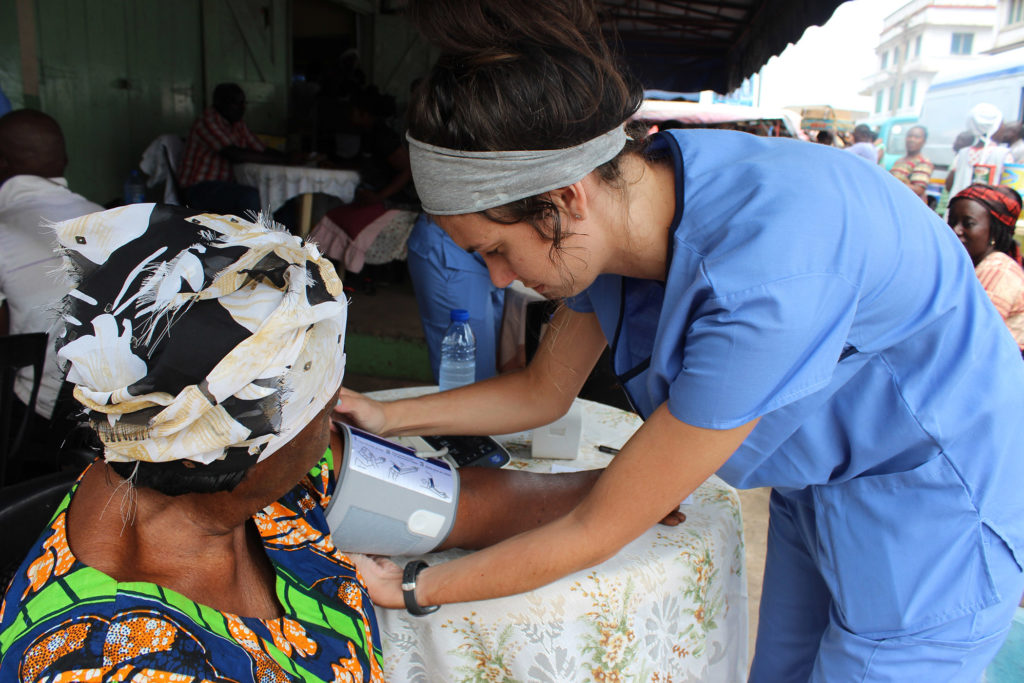Four collaborative, international research projects at UGA are the first to receive seed funding under the new Global Research Collaboration Grant program.
The program will fund a range of projects—from a data-driven look at 19th-century Atlantic trade to the development of novel enzymes for bioenergy production—and each initiative will receive between $4,000 and $8,000 to cover initial project costs.
“Some of the most exciting questions and challenges facing researchers today are global in nature,” said Brian Watkins, director of international partnerships at the Office of International Education. “Tackling them requires international engagement, and by providing early support to promising projects, UGA can expand the global impact of its work and open up additional sources of international funding.”
Funding is provided by the Office of International Education and the Office of the Vice President for Research, and it is matched by academic departments. Researchers may submit their proposals for a second round of funding through Oct. 11.
Alex Kojo Anderson, an associate professor in the College of Family and Consumer Sciences, is collaborating with Susan Roberts at Tufts University and Matilda Steiner-Asiedu at the University of Ghana. Anderson is a member of the International Obesity Consortium, headquartered at Tufts, and a member of UGA’s Obesity Initiative.
Through a pilot study of 50 non-pregnant, normal-weight and obese women in Ghana, the researchers hope to identify specific dietary, behavioral, lifestyle and socio-cultural factors that are barriers to healthy weight control for these women. Data collection will include face-to-face interviews; activity monitoring; measurements such as height, weight and body mass index; and evaluation of eating and other behavioral factors, such as perceived stress and sleep patterns. The grant funding for this project was matched by the foods and nutrition department.
The Franklin College of Arts and Sciences’ Benjamin Ehlers, an associate professor of history, and doctoral candidate David Thomson are collaborating with Stephen Kenny and Nicholas Fuqua at the University of Liverpool, England, to create a database and web portal for
researchers and students to access data on pre-Civil War, trans-Atlantic shipping voyages. Researchers are developing the website that houses the data. They will recruit researchers from Cuba, one of Savannah’s key trading partners in the antebellum era. The project is co-funded by UGA’s Willson Center for Humanities and Arts and the history department.
Ellen Neidle, a professor of biology in the Franklin College, and Melissa Tumen-Velasquez, a postdoctoral fellow in Neidle’s laboratory, are collaborating with John McGeehan at the University of Portsmouth in England. They will modify enzymes to increase the breakdown of compounds derived from an abundant plant material, lignin, into useful chemicals and biofuels. Their initial research will demonstrate the feasibility of their approach; their goal is to develop a better, sustainable method for producing biofuels. This project was co-funded by UGA’s Franklin College and the microbiology department.
Chad Howe, an associate professor in the Romance languages department in UGA’s Franklin College, is collaborating with Dr. Daron Ferris of Augusta University and language consultant Elisabeth Mamani on a project involving cervical cancer, one of the leading causes of cancer death among women in Cusco, Peru. CerviCusco was founded by Ferris in 2008 to screen local women for the disease. While the program has been effective, language and literacy barriers exist as both Spanish and a local language are spoken in the area.
The goal of this project is to develop written and oral questionnaires in the Quechua language to complement the Spanish versions to better inform, screen and treat these women. The questionnaires will be administered in the Cusco clinic and at selected mobile sites. Data collected will be analyzed to determine the effectiveness of language- and culture-based intervention on the perceived quality of the services provided and the likelihood of patient compliance with follow-up visits. Funding for this project was matched by UGA’s Latin American and Caribbean Studies Institute.
“This program is a vital component of our ongoing efforts to increase international collaborations and secure additional funding for the world-class research conducted at UGA,” said David Lee, vice president for research.
